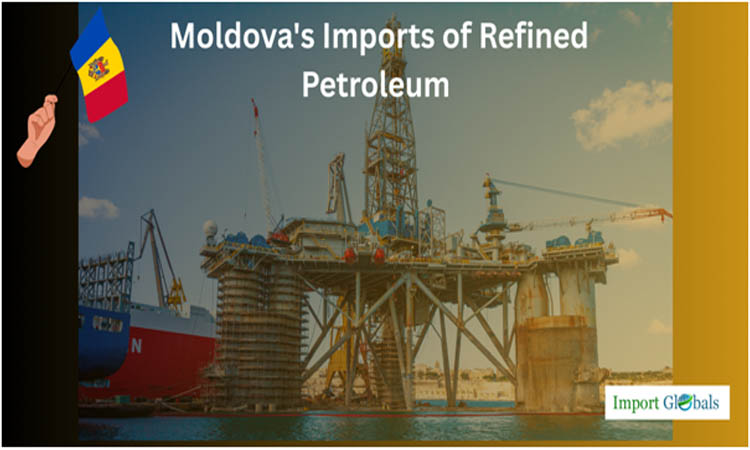
- Jun 18, 2025
A Strategic Economic Analysis of Moldova's Imports of Refined Petroleum
Getting enough energy to meet its domestic demand is a problem for Moldova, a landlocked country in Eastern Europe. Due to a lack of substantial domestic energy resources, the nation is mostly dependent on energy imports, of which refined petroleum products are a major component. These imports are necessary to power industries, heat homes, fuel vehicles, and sustain economic activity, according to Moldova Import Data From Import Globals. From 2020 to 2024, this blog explores the dynamics of Moldova's imports of refined petroleum, offering information on trade balances, economic indicators, import partners, strategic implications, pricing, future trends, and a thorough product analysis of refined petroleum.
Overview of Trade in Moldova
According to Import Globals' Moldova Import Data, the nation consistently has a trade deficit, in part because of its heavy energy imports. The following describes Moldova's trade patterns for the previous five years:
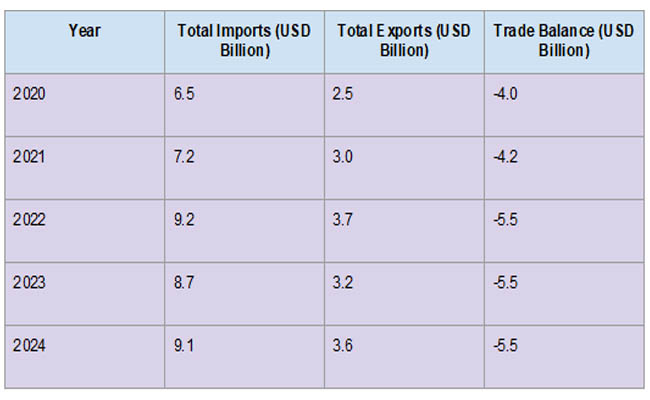
Overview of Imports of Refined Petroleum (2020–2024)
Over the previous five years, Moldova has consistently increased its imports of refined petroleum. According to a report by Import Globals on Moldova Export Data, this consistent rise is a result of both the influence of changes in the world oil price and Moldova's expanding energy needs.
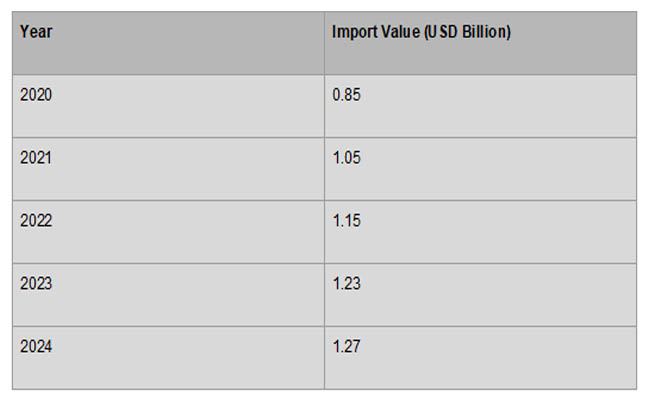
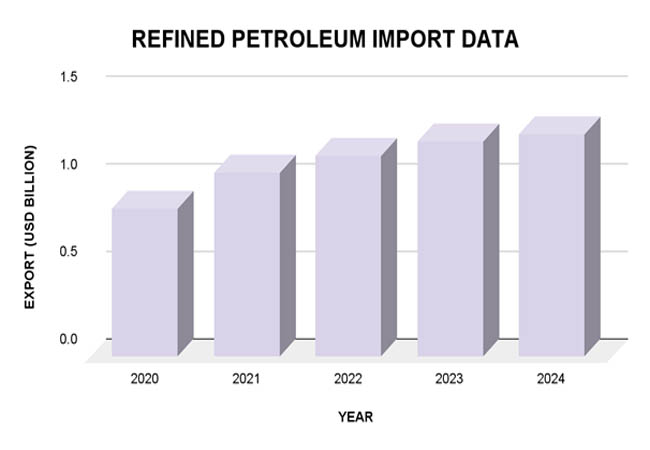
The Energy Dependency of Moldova
Moldova imports the majority of its petroleum products since it lacks substantial refining facilities. Refined petroleum makes up a sizable amount of the nation's imports, indicating its energy dependence, according to a study conducted by Import Globals on Moldova Export Import Global Trade Data. Moldova is susceptible to foreign supply shocks and price volatility as a result of this dependence.
Important Refined Petroleum Import Partners
Due to their proximity and longstanding economic relations, Romania supplies the majority of Moldova's gasoline, according to the Moldova Export Import Global Trade Data. The main suppliers of refined petroleum to Moldova are:
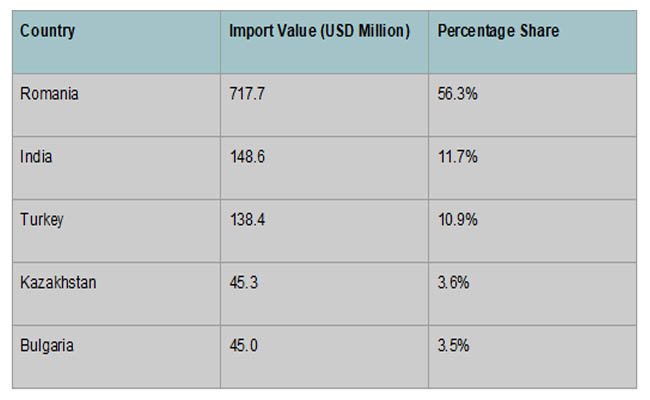
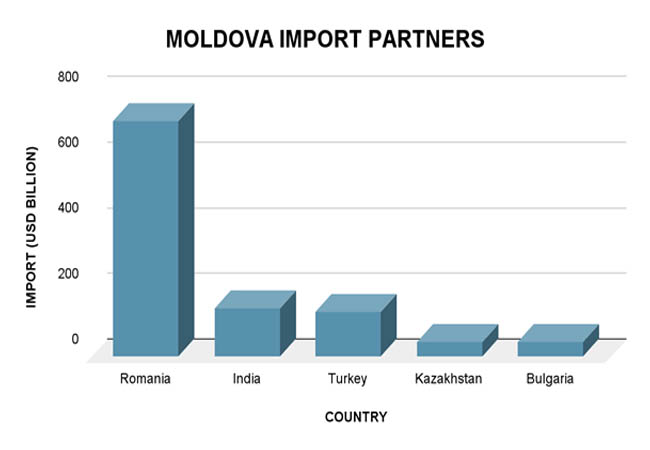
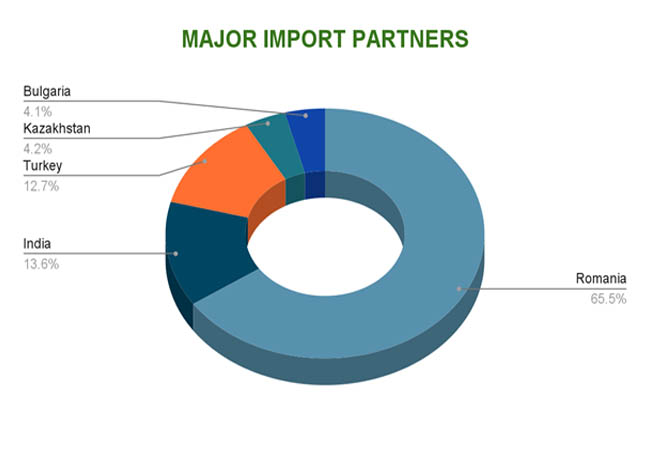
Comprehending Refined Petroleum
Refined petroleum includes goods made from crude oil processing, according to Moldova Import Export Trade Data Supplied by Import Globals. Typical goods made from refined petroleum include:
- Gasoline (Petrol): Petrol, often known as gasoline, is mostly used as an automobile fuel.
- Diesel Fuel: Diesel fuel is used in industry, transportation, and agriculture.
- Jet Fuel: Aircraft engines are powered by jet fuel, often known as kerosene.
- Heating Oil: Heating oil is used to heat homes and businesses.
- Liquefied Petroleum Gases (LPG): Liquefied petroleum gases, or LPGs, are used in industrial, heating, and cooking settings.
These goods are essential to many industries, such as manufacturing, transportation, agriculture, and energy production.
Analysis of the Product: Refined Petroleum
Because they provide the foundation for industrial processes, transportation, and heating, refined petroleum products are essential to Moldova's economy. Due to a lack of domestic refining capability, the nation must import these items in order to meet its energy needs, according to Import Globals' Moldova Import Export Trade Analysis.
Composition and Applications
There are several products made from refined petroleum, each with a distinct purpose. Vehicles run on gasoline, which is necessary for both private and commercial transportation. Diesel is essential for farming and logistics since it powers trucks, buses, and agricultural equipment. Jet fuel is utilized in aviation to enable flights carrying both passengers and freight. Heating oil is essential for heating homes and businesses throughout the winter months. LPG is used as fuel for some cars and heating, and cooking. These goods are essential to many industries, such as manufacturing, transportation, agriculture, and energy production.
Distribution and the Supply Chain
Usually, imported petroleum products arrive in Moldova through:
- Truck Transport: From nearby nations, mostly Romania, according to Moldova's import shipment data.
- Rail networks: Linking refineries in adjacent nations.
Before they are delivered to gas stations and customers, storage facilities are overseen by national distributors. The national energy security depends on this supply chain being maintained.
Aspects of Pricing
The following factors affect the price of refined petroleum in Moldova:
Global Oil Prices: Benchmarks such as Brent and WTI were seen in the Moldova Import Trade Statistics provided by Import Globals.
- Costs of Regional Transportation: Fuel import charges.
- Currency Fluctuations: They are variations in the value of the US dollar relative to the Moldovan leu.
- Government Regulations and Taxes: obligations and laws that impact the cost of fuel.
- Seasonal Demand Peaks: Wintertime consumption spikes.
- Consumer price Fluctuations: They can be mitigated or amplified by fuel subsidies or tax changes.
Risks to Strategy
Moldova Import Data states that geopolitical vulnerability is the possibility of supply disruptions due to political tensions or sanctions.
- Price Volatility: Significant spikes in oil prices have an immediate effect on inflation and the national budget.
- Infrastructure Dependency: Shortages may result from damage to storage facilities, transportation routes, or pipelines.
- Currency Risk: Importing gasoline becomes more costly as the Moldovan leu depreciates relative to the US dollar.
Global Exporters of Refined Petroleum
The United States is the world leader, exporting large quantities of refined goods, particularly to Europe and Latin America, by utilizing its extensive refining capacity and shale oil output. India is a significant exporter to Asia, Africa, and Europe due to its advantageous position and sizable refineries, such as those run by Reliance Industries. According to Moldova Import Data From Import Globals, the Netherlands is a major energy hub in Europe and uses its sophisticated infrastructure to re-export refined goods throughout the continent.
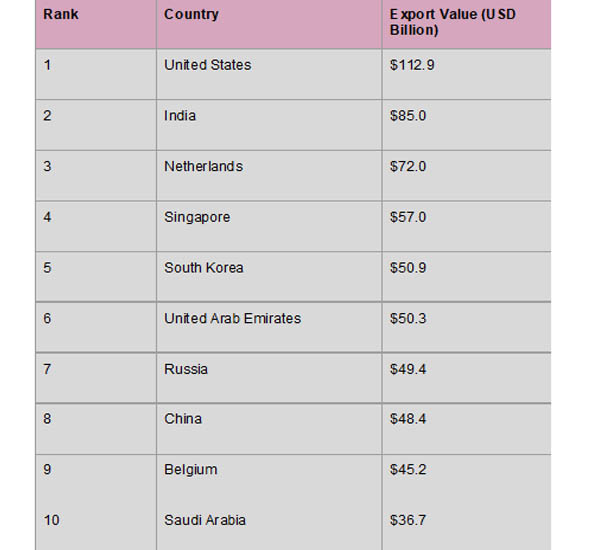
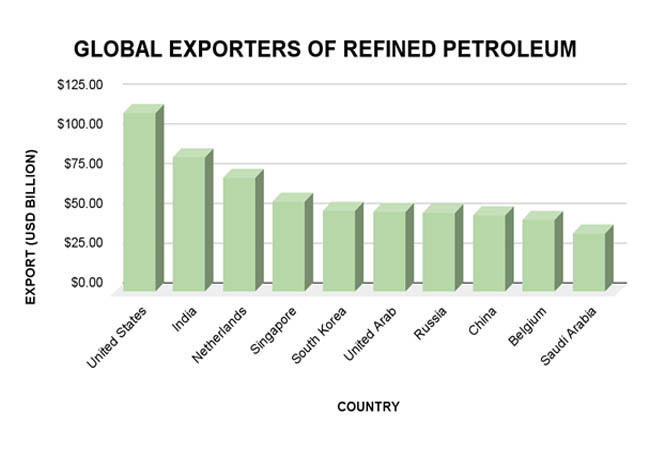
Using its strategic port and storage facilities, Singapore, a key trade and refining hub in Asia, exports to regional markets. Thanks to its sophisticated refineries, South Korea sells refined petroleum mostly to Asia-Pacific nations, such as China and Japan. According to the Import Globals Study on Moldova Import Trade Statistics, the United Arab Emirates, specifically through Abu Dhabi, uses its state-of-the-art refining facilities to export refined goods to international markets. Russia continues to be a major exporter, sending refined goods to nations in Asia and Africa in spite of sanctions. China may export excess refined products, mostly to its Asian neighbors, thanks to its expanding refining capacity. Saudi Arabia, which has always exported oil, is growing its refining industry to boost refined product exports.
Prospects for Moldova
Moldova can reduce these Risks by:
- Diversify Your Energy Sources: To lessen dependency on imported fuels, research by Import Globals on Moldova Export Data recommends investing in renewable energy sources like solar and wind.
- Improve Energy Efficiency: To reduce consumption, encourage the use of public transportation and fuel-efficient automobiles.
- Enhance Regional Partnerships: To guarantee a steady supply, energy cooperation with the EU and surrounding nations should be strengthened.
Strategic Consequences
Moldova's energy strategy needs to take into account:
- Getting Long-Term Supply Contracts: According to Moldova Import Data, signing contracts with reliable partners will guarantee a steady supply of fuel.
- Increasing Strategic Fuel Reserves: accumulating supplies to protect against temporary interruptions.
- Putting money into Domestic Energy Sources: creating renewable energy initiatives to lessen reliance on imports.
- Encouraging Regional Energy Market Integration: Working together with nearby nations to ensure energy stability and security.
In conclusion
A significant portion of Moldova's energy consumption is still derived from refined petroleum, highlighting the nation's reliance on energy imports. For Moldova's energy security and economic stability, this reliance must be addressed by diversification, investments in alternative energy sources, and regional collaboration.
If you are looking for detailed and up-to-date Moldova Import Data, You Can Contact Import Globals.
FAQs
Que: What causes Moldova to have such a high trade deficit?
Ans: primarily because energy imports, such as refined petroleum, are significantly more expensive than Moldova's overall exports.
Que: Is it possible for Moldova to cut back on fuel imports?
Ans: Definitely, through enhancing energy efficiency and making investments in renewable energy.
Que: What effect does the price of oil have globally on Moldova?
Ans: Increasing oil prices in Moldova directly result in higher fuel prices and higher inflation.
Que: What makes Romania the leading provider of fuel?
Ans: Romania has significant refineries nearby and has a good trading relationship with Moldova.
Que. Where to obtain detailed Moldova Import Data?
Ans. Visit www.importglobals.com or email info@importglobals.com for more information on up-to-date Moldova Import Data.
